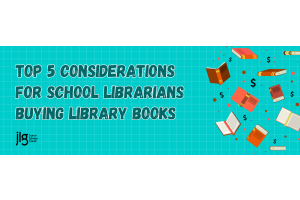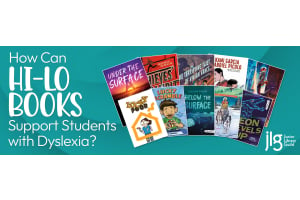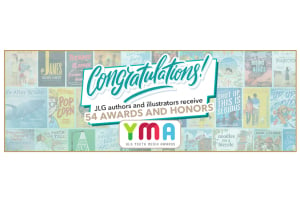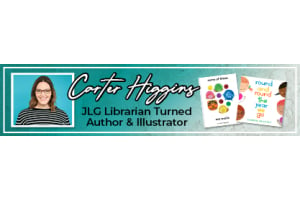Coffee with Margaret Peterson Haddix

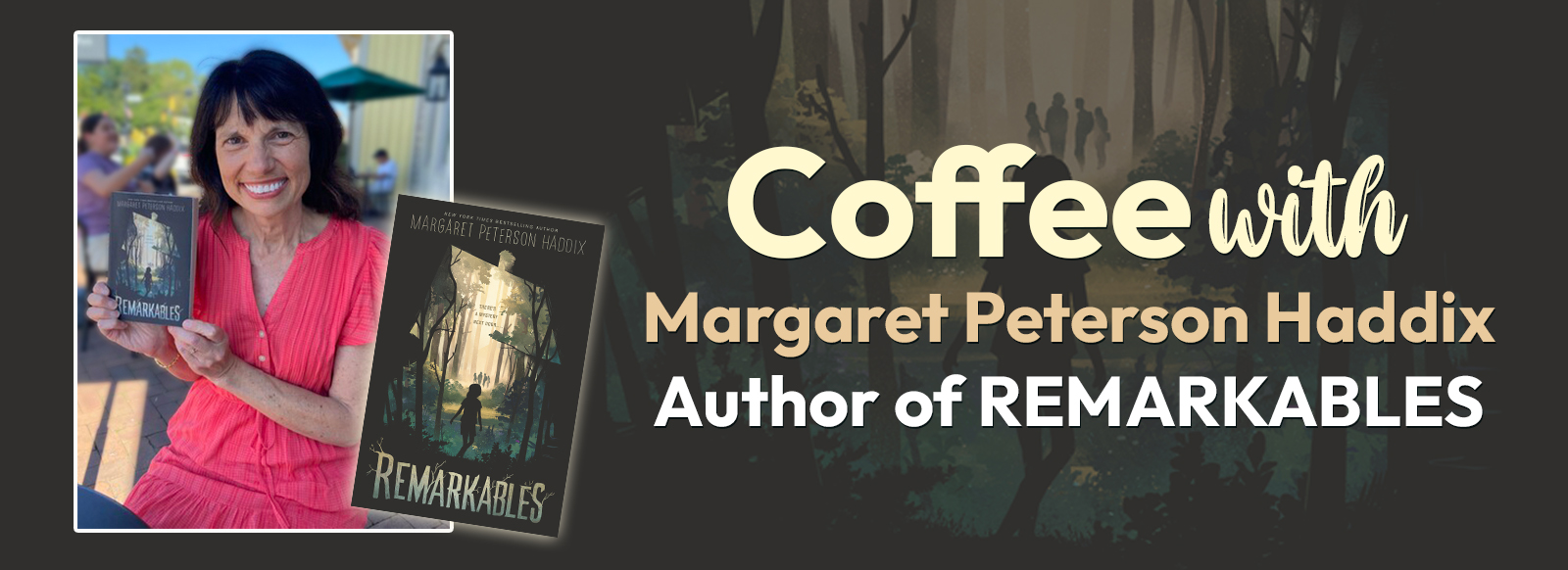
Throughout elementary and middle school, I read nearly every title written by Margaret Peterson Haddix, so having the opportunity to sit down with my literary hero over coffee was naturally the best day of my life. When I met Margaret, she ordered an iced chai latte and immediately commented on the beautiful, summer weather that Ohio was producing. Everything about her screamed “author,” like the way she thoughtfully answered my questions, or the way she’d stop to think about her words and speak them in a calm, cool, and collected manner. She was humble, and loving, and cared deeply for the human spirit. “If kids are going through hard times themselves,” Margaret said, “I hope that this book can be healing for them to read.”
I hope you enjoy reading this interview as much as I enjoyed speaking with Margaret, because getting to know more about her outlook on time travel, her Lego-piecing method for constructing a character, or the way she cares tirelessly for the middle school (and human) condition was just like reading one of her novels—remarkable.
Q: REMARKABLES explores the idea of taking time to live in the present moment rather than trying to recreate the past or focus too much on what could happen in the future; what inspired this theme? Has there ever been a time when you felt stuck in the past or too focused on the future?
A: It's important to stay mindful of the moment we’re in because that's where we really live; the past is over—you can't change it—and the future hasn't happened yet. You can certainly influence things about the future, but if all you're doing is living for the future, you're not ever savoring what you have in front of you. I don't think that's something that kids have as hard of a time figuring out as adults, but for both Charley and Marin, that's definitely an issue.
There was a time recently where I felt stuck in the past; I was very hurt over something that had happened with a friend, and I was having trouble letting it go. I kept holding on to these negative feelings. and it didn’t feel good. Not only was I upset with someone else, but I was upset with myself, constantly trying to figure out if I was acting “correctly.” Even after the fact, I kept second-guessing myself and wondering if I should have or could have handled things differently.
With Marin and Ashlyn for example, they both have a hard time deciphering what happened in their past, so a part of them is always living in that moment and trying to figure out what is really going on between them. They both needed to figure out what really happened in their friend circle before they could move on. We see Marin at the beginning of the story just dwelling on the past, and she needed to do that to digest her feelings and figure out how to move on. It’s important to learn from these types of experiences at this age because it can help you navigate friendship problems in the future. Middle school is a time in everyone’s lives where nothing seems to go according to plan; everyone’s going through massive changes, and everyone handles their emotions in different ways. Middle school age is brutal.
Unfortunately, the mistrials and mishaps of middle school are very common, and I used to think that when I was all grown up, that when I was an adult, I would have a lot more figured out than I did at that time of life. In the sense of navigating friendships, I do have more experience now than I did when I was a child trying to figure things out. But even recently when I felt “stuck in the past,” I was being melodramatic, and I needed to let things go… but I was still having a really hard time doing that.
In a way, writing this book was a way for me to ruminate on my past and propose new ways of handling difficult decisions. Writing can be a very helpful technique when you are going through a hard time or dealing with something unfavorable. Writing has helped me get through life, and I hope it helps others get past whatever they are stuck on. I really wish I could tell kids that yes, it might be hard now but when you get older, it all gets better, you’ll have it all figured out—but unfortunately, that’s not how it goes. None of us have it all figured out.
Q: Marin and her dad have such a fun relationship: they love to goof around with each other, they give advice to one another, and they care deeply for their family. Why was it important to create this relationship in your story? What was your inspiration?
A: I wanted Marin to have a solid relationship with her parents because she has really tough friend issues with Ashlyn, Kenner, and Charley. Marin’s trying to move to a new state and fit in, so I really wanted to give her one gift: amazing parents.
As I began writing Marin’s dad, he came to life; he’s dramatic, bold, funny, energetic, and a teacher that everyone adores. In some ways, he parallels my cousin of mine who is a teacher and in other ways, he reminds me of a minister I know who is a jolly teddy-bear-of-a-guy. I never base my characters off one person in my life, but rather I enjoy pulling bits of pieces from people that surround me. I think of it like a building one, giant Lego; I pull Legos from various kits and make one massive Lego creation—and that is Marin’s dad (and some of my other characters!).
Marin’s dad was an interesting character to write because he’s going through a hard time just like other characters in the book; he doesn't have a job lined up yet and he's trying to figure out who he is—he’s battling with his identity. Before the big move, Marin’s dad was a successful physical education teacher who loved his job, students, and colleagues, but now, he must learn to get his bearings in his new life—very similarly to Marin, Charlie, and Ashlyn.
While Marin loves her dad, she also challenges him from time to time. During middle school, kids for the first time start to see their parents as real people who have feelings and make mistakes—they’re not the fearless, indestructible, superheroes that we make them out to be in our heads. Marin starts to unravel this notion, that her dad is struggling with the move just like she is. Both characters empathize with each other, and they both remind themselves that they can do this! They will get through this difficult time—together!
Q: Marin and Ashlyn’s friendship resolution proves that forgiveness has a healing effect—for everyone involved. How do you hope your readers apply this lesson to their everyday life? Is there ever a reason to not forgive someone?
A: I hope that after reading this book, readers will see that talking about their emotions or working though difficult conversations is worth the extra effort. It would have been really easy for Marin and Ashlyn to never speak to each other again and just move on, call it “quits,” but talking about the hard stuff helped them get past it and helped them see that there was life left in their friendship. Ashlyn and Marin have such a solid base, and they had to remind themselves of that. Once they were able to sit down and have a conversation, they could start to see things from the other person’s perspective and forgive each other.
Is there ever a reason to not forgive someone? That’s the ten-billion-dollar question, isn’t it? I think that tiptoes up to theology more than anything else. I believe that there are terrible things that people do—things that are so egregious—and sometimes it’s not as simple as saying, “Okay, I forgive you” and then agreeing to move on. I’m thinking right now of a child who is in abusive home, like Charley, for example. You don’t want that child to live their life thinking that they need to keep dealing with these awful things that are happening at home. I think sometimes kids in these tough situations think to themselves, “Well, I’m supposed to forgive this person, so I guess I’ll just keep dealing with this…” and I don’t think that’s the right mentality in this case. Kids in an abusive home need help. There are ways to forgive an abusive parent without staying in that situation. Often, people get confused and think that when we forgive someone, we give them an excuse to keep treating us poorly, but that’s not the case. We can forgive and move on but not forget what has already happened.
Q: Charley often worries about becoming his father or acting like his father in the future; can our family’s past mistakes influence our future? If so, to what extent? Do you believe that we all have the power to choose our own fate?
A: We all have a starting point in our life, and for most people, it’s our family. We’re shaped immensely by our family and their views, but that doesn't mean we can’t choose how to act or react in situations. We all have different struggles or things that we’ll need to overcome because of the paths we’ve been set on in life, but we need to remember that we can get past these hardships. I would like to believe—or I hope for every child who is in a situation like Charley’s—that there is some trustworthy adult in their life, like Charley’s grandma. She is a great example of someone who is doing all she can to try and help Charley forgive his father and help him realize his own potential—that he is his own person and does not have to act like his father.
Q: At times throughout the story, both Marin and Charley have a hard time expressing their feelings. If your readers are having a hard time expressing their feelings, what advice would you offer them? Are there any resources that might be helpful or offer them support?
A: I always suggest finding a trusted adult that you can confide in and a friend that you can go to in times of need. Having friends at this age can be tricky, but they can offer support and listen to you when you need someone to talk to. On the flip side, it may be hard to have a friend that’s going through a difficult time when you’re young; you might not have all the answers, but no matter a person’s age, we can all help assure others that there’s a way to get through these tough times and maybe help them find the people or the resources they need. The world is moving in the right direction, encouraging people to destigmatize mental health and take an extra second to think about what could be going on in someone else's life. I really admire that more kids want to be there for each other nowadays.
If young readers or students are looking for help, librarians are a never-ending bucket of knowledge that can help people connect with the right resources!
Looking for a few resources to share? Please consult the following list for a few suggestions:
- -On Our Sleeves: The Movement for Children’s Mental Health
- -National Alliance on Mental Illness
- -The National Child Traumatic Stress Network
- -Substance Abuse and Mental Health Services Administration
- -National US Child Abuse Hotline: 1-800-4-a-Child (1-800-422-4453)
- -National Youth Crisis Hotline: (800) 442-HOPE (4673)
Q: If you could time travel (to the future or past), what would you do/ where would you go/ who would you meet? Or would you decide to not time travel at all…?
A: That’s a challenging question! I’ve thought about this question for quite some time (I wrote a whole series of books dedicated to time travel!), and my answer is… that I just really don’t know.
*chuckles*
See, if you go back to the past and change things—hopefully for the betterment of our world—you never know what kind of unintended consequences there could be or what you might mess up. It’s a scary thing to think about! I guess I have some temptation to go back in time and see a loved one that is no longer here, but I bet that would terrify the person! Could you imagine if someone walked up to you and said that they were your great granddaughter from the future? They wouldn’t technically know who I was at this point in time, and they would be confused.
I also think that it could be pretty scary to go look at the future, because then you have the fear of knowing what lies ahead and that could take away from your time in the present. It’s a fascinating thing to think about, but I think I would be paralyzed if I truly had the option to time travel. I guess one “safe option” that comes to mind is going to the past and just observing, you know, seeing how things really were back then—merely for curiosity’s sake. We have written records, and then after a certain period we have recordings, but maybe we only see one perspective? If we went back in time to observe, maybe we could see more perspectives? But what if we went back in time and then tried to change things or how we saw them? See? I’m back to my original answer of being indecisive.
My definite answer is that I don’t really know.
Q: Why do you write primarily for a middle school audience? What about this age/ time in life interests you? How do you make difficult themes digestible for younger readers? Why is it important for you to write for this audience?
A: I feel called to write to this audience because when I was in middle school, books were so important to me. I was pretty shy kid, and when I went through some of my own friendship issues—I don’t know of anybody who doesn’t go through friendship issues during that time of life—I always felt like I had friends when I had my books. It was always such a pleasure for me to read, and it’s at this age that books can make a real difference in someone’s life. Books have such a capacity to encourage people to be empathetic by putting us in other people's shoes, and this time in a person’s life is so vital to their development and the piecing-together of their identity.
Selfishly, as a writer, books must be about change, because if everything stayed the same in a book, it’s a really boring book. Kids at this age are going through so many changes. and there’s so much that you can put on the page!
Q: What is your favorite book that you have written? What’s your favorite book in general? What book are you currently reading?
A: My books are like my children; I can’t pick a favorite—I don’t want to hurt their feelings! That would be too sad, so the answer is no, I don’t have a favorite book that I’ve written.
I also don’t have a favorite book in general either because it’s too hard to choose! For a while, my standard answer—for children’s books—was When You Reach Me by Rebecca Stead (there’s some time travel in the book!) As of recently, I’ve really enjoyed reading Front Desk by Kelly Yang, and I’m currently reading an middle grade book called Ruby Lost and Found by Christiana Li. It’s really good so far!
Q: If readers enjoyed REMARKABLES, what other books from your writings would you suggest they read?
If readers enjoyed the time travel aspect of the book, I would suggest they read The Missing series. If they liked the weird or strange nature of the book, or the kind of don’t-know-what’s-going-on feeling at the beginning of the story, I’d recommend they read The Greystone Secrets series. If they like stories about friendship, I think The School for Whatnots is a good pick!
Q: What’s next in your writing career?
A: I have my 50th book coming out on September 12, 2023—TODAY!—called The Ghostly Photos which is the sequel to The Secret Letters in the Mystery of Trash and Treasures series. I’m currently revising the end of the third book in that series—which will come out in the fall of 2024—and then I also have a proposal in for another series… I’m still waiting to hear about that one!
Q: What makes us humans so remarkable?
A: They have such potential and such a capacity for love. How remarkable!
REMARKABLES was a book offered in JLG’s Mystery/Adventure Elementary Plus category. If your readers are in need of new mystery or adventure books, we have you covered! Speak with a JLG representative today or start building your custom Book Box online!
Stay connected with Margaret Peterson Haddix!




